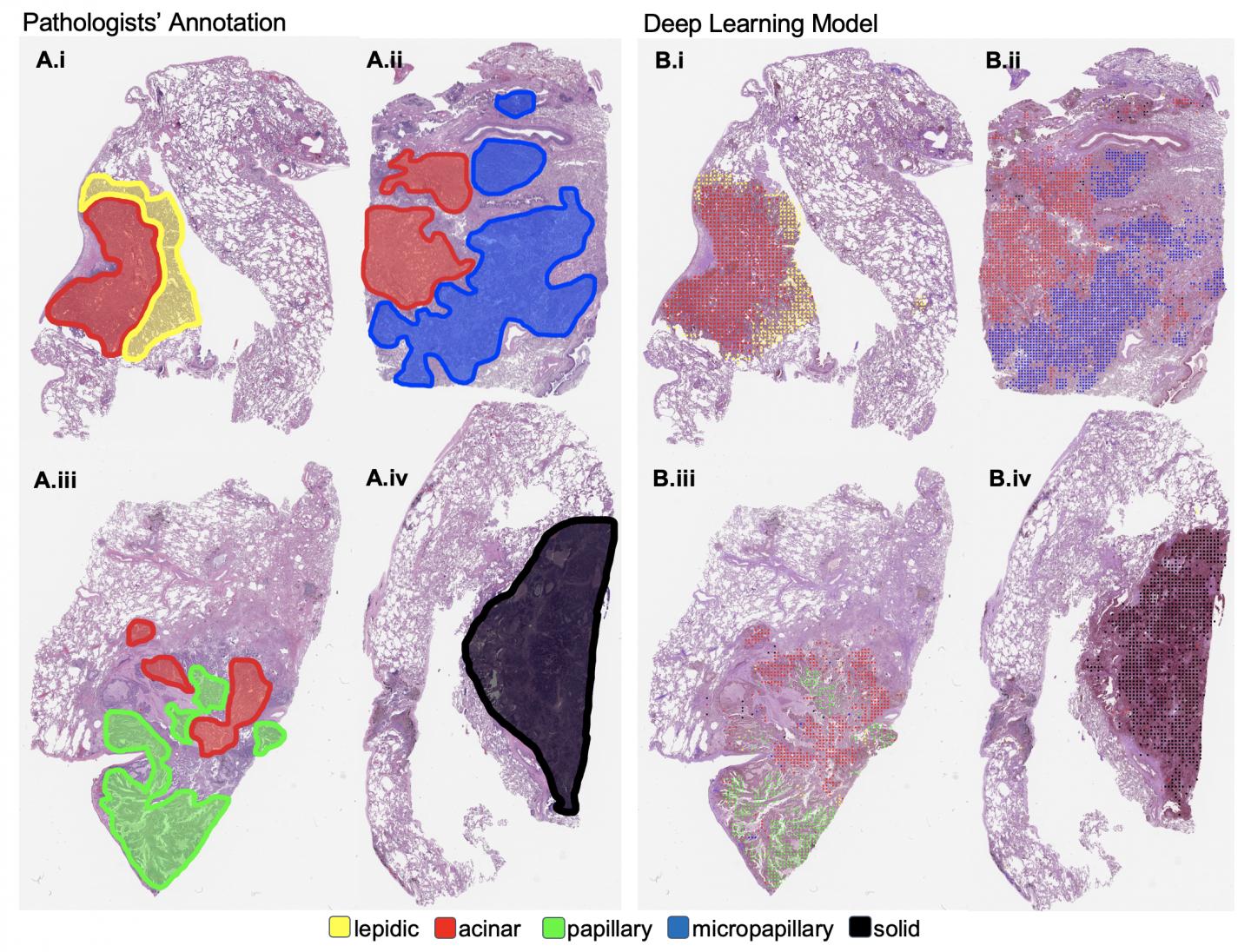
Researchers have developed a machine learning model that can classify different types of lung cancer in less than a minute.
The model could be used to assist doctors in determining tumour patterns and subtypes, which is an important part of prognosis and so determining the appropriate treatment.
The Dartmouth-Hitchcock Medical Center researchers say the machine learning model can perform on par with three practicing pathologists.
Machine learning, a subset of AI, is a type of algorithm that trains itself to predict outcomes and learn from successes and failures.
In this model, the researchers used unsupervised machine learning, which means the model automatically trawls through millions of training data to identify subtle correlations and so teach itself.
Machine learning — well suited for medical image recognition
Lung adenocarcinoma, the most common type of lung cancer, currently requires pathologists to visually examine the lobectomy slides on a case-by-case basis.
How well do you really know your competitors?
Access the most comprehensive Company Profiles on the market, powered by GlobalData. Save hours of research. Gain competitive edge.

Thank you!
Your download email will arrive shortly
Not ready to buy yet? Download a free sample
We are confident about the unique quality of our Company Profiles. However, we want you to make the most beneficial decision for your business, so we offer a free sample that you can download by submitting the below form
By GlobalDataIt is both a time consuming and subjective task, making machine learning well suited to expedite the process. As a result, scientists are increasingly turning to machine learning to assist with medical diagnosis.
“Our study demonstrates that machine learning can achieve high performance on a challenging image classification task and has the potential to be an asset to lung cancer management,” said Saeed Hassanpour, the assistant professor from Darmouth’s Norris Cotton Cancer Center who led the study.
“Clinical implementation of our system would be able to assist pathologists for accurate classification of lung cancer subtypes, which is critical for prognosis and treatment.”
The Lebanon-based researchers say they also plan to apply the deep learning model to analyse images in breast, esophageal and colorectal cancer.
“If validated through clinical trials, our neural network model can potentially be implemented in clinical practice to assist pathologists,” said Hassanpour.
“Our machine learning method is also fast and can process a slide in less than one minute, so it could help triage patients before examination by physicians and potentially greatly assist pathologists in the visual examination of slides.”
The findings were published in the journal Scientific Reports.
Read more: Machine learning method could reduce the number of unnecessary surgeries







